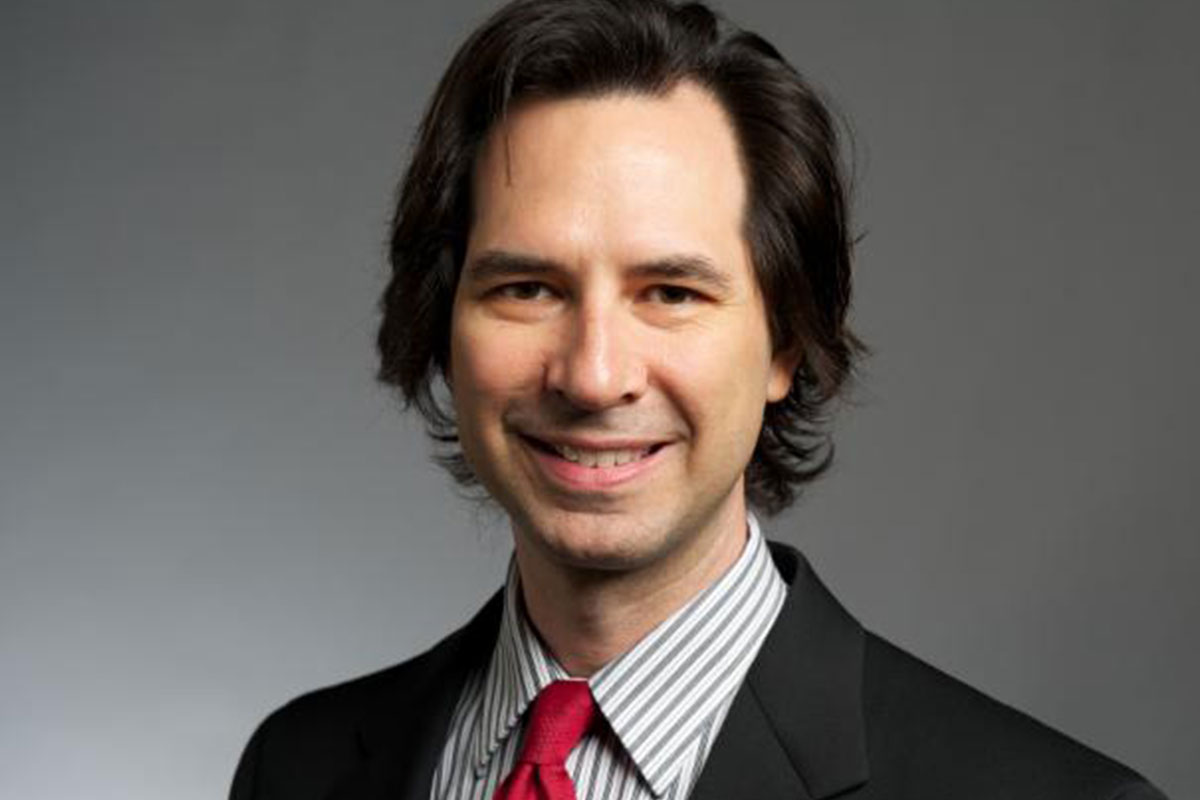
Mastering English well enough to take college courses in our quirky language is undeniably challenging for many non-native speakers. To help students get up to speed, Associate Teaching Professor Erik Voss teaches “Professional Speaking” and “Advanced Listening and Speaking for Graduate School” to his students in the Global Pathways program, who will go on to pursue graduate studies at Northeastern.
Voss’s classes address both language and culture—a combination he believes is critical for his students’ success. His own PhD studies, in applied linguistics and technology, at Iowa State University, focused on the tests that measure English-language preparedness for college or the workforce. He believes it’s important to understand what a language test is actually measuring.
“One feature in language that is difficult for second-language learners is collocations,” Voss says. Collocations are generally combinations of two words that frequently appear together in the English language and are not very intuitive to non-native speakers. “Why do we say ‘pay attention,’ for example, or ‘gain knowledge?’”
The meaning of a collocation may be easy to understand when read or heard in context, he says, but can be difficult to produce for second-language learners because, in other languages, the same concepts are expressed with different verbs.
Helping to Better Assess English Proficiency
In his doctoral program, Voss studied computer-assisted language learning. He used an online database to identify collocations in academic language and then developed a web-based assessment to see whether students were aware of them.
That type of information, Voss says, can be used to help more accurately identify the proficiency level for an English language learner. But test scores can be used incorrectly, he says, and that is a problem, because language testing can have a sizable impact on people’s futures. A test that measures one language feature—for example, only grammar and not speaking or writing ability—should not be used to predict speaking or writing ability in a college setting.
Voss has spent his career studying the characteristics that make English difficult, but must be learned for people to function in academic and work settings. The Rockford, Illinois, native became interested in languages as a child visiting Sweden, his grandfather’s birthplace. His knowledge of Swedish led to his master’s studies at the University of Uppsala and jobs teaching Swedish as a second language in the U.S. It also sparked his interest in other languages and cultures. He has since studied at the University of Hawaii at Manoa on Oahu and taught in China.
Voss’s students are mainly from Asia, South America, and Europe. His graduate students are ambitious professionals and under pressure to score well on both their TOEFL tests—which measure individuals’ ability to understand English at the university level—and GRE tests, used by graduate and professional schools to assess college readiness at the advanced level.
Talking to Strangers
For homework, Voss’s students listen to podcasts featuring real-life situations, which they discuss in class. Then, they write questions about the subjects and practice with each other to see how well their questions work. In a test of their real ability to use their new knowledge, students are assigned to interview people on campus to get experience using their English with strangers.
One of the most important concepts he conveys in class is the importance of body language in English communication. Classes watch TED talks and other videos at home and discuss in class how hand and facial gestures advance an argument.
Students also learn about U.S. classroom etiquette, which is less formal than in many of their home countries. In Asia, Voss says, it’s typical for a student who arrives late to class to knock on the door and then apologize to the instructor, which in the U.S. would be considered disruptive.
“The fun part of teaching is that I get to see the ‘aha’ moments, when students notice the differences between U.S. culture and where they’re from,” he says.
Discerning the Differences in English
One interesting classroom topic, Voss says, is how English pronunciation varies from the written word. “Instead of ‘I’ve got to,’ we say, ‘I gotta,'” he notes. Though it might not be considered “proper English,” students need to notice these colloquialisms in order to more easily understand spoken English.
He likens learning a language to learning to play a musical instrument. Being a guitarist himself, Voss believes, may have helped him learn Chinese, in which different tones, whether high or low, give words different meanings.
“If you’re attuned to changes in pitch, you can learn Chinese faster,” he says.
Now, Voss is researching approaches to test validation and how it is applied to English testing. He hopes his work will contribute to making those tests a more valid and useful measure of English ability.
The most rewarding part of his work, Voss says, is when former students come back to class and tell him how much the class helped them. Some have even spoken with current students about what they can expect after they graduate.
“That’s perhaps the highest compliment a teacher can get,” he says.





Related Articles
Why Earn a Professional Doctoral Degree?
5 Tips to Get the Most out of Grad School
Is Earning a Graduate Certificate Worth It?